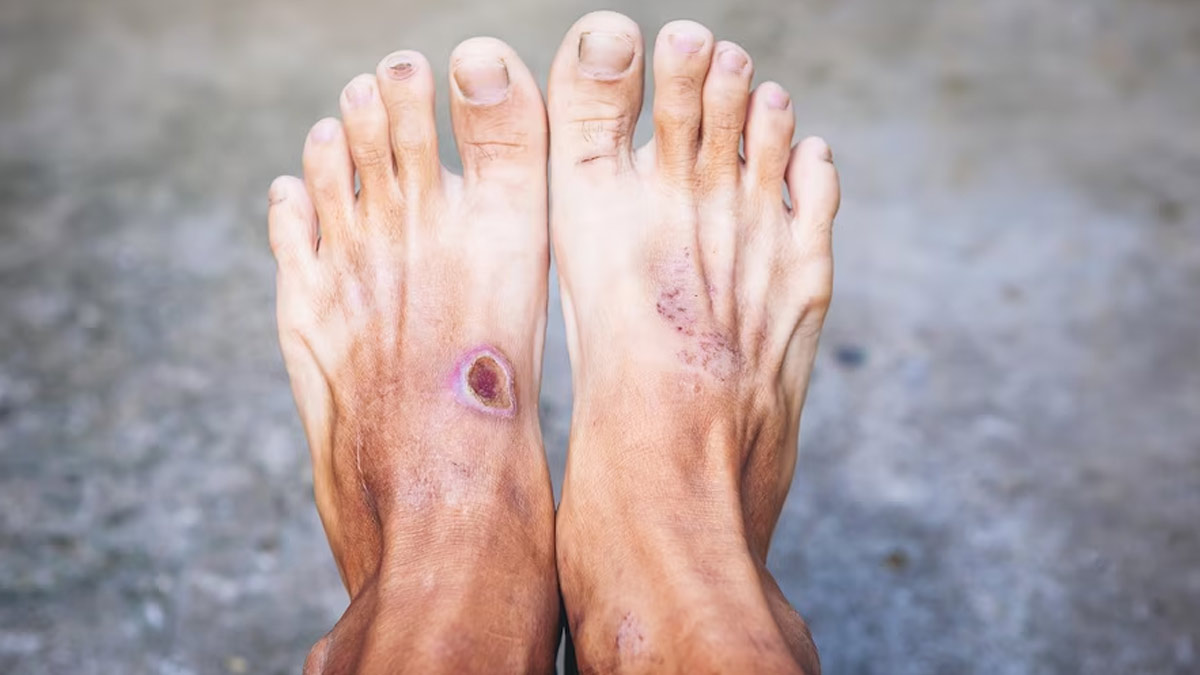
Diabetes foot ulcers are a common and serious complication that affects individuals with diabetes. These ulcers can lead to significant health risks, including infections, reduced mobility, and even the need for amputation. However, with proper knowledge and effective management strategies, it is possible to prevent, treat, and heal diabetic foot ulcers. To learn more about it, we spoke to Dr Ranga Santhosh Kumar, Consultant General Physician and Diabetologist, Yashoda Hospitals, Hyderabad.
What is Diabetic Foot Ulcer?
A diabetic foot ulcer is a serious and common complication of diabetes mellitus. It refers to an open sore or wound that develops on the foot of a person with diabetes. The development of diabetic foot ulcers is often the result of a combination of factors, including the presence of neuropathy (nerve damage) and decreased blood flow. According to National Center for Biotechnology Information, a foot ulcer eventually develops in approximately 60% of individuals with diabetes due to the progression of neuropathy.

Also Read: My Foot Ulcer Not Healing: Could It Mean Diabetes?
Effective Management of Diabetic Foot Ulcers
To take care of diabetic foot ulcers, there are important things that need to be done. According to Dr Kumar, "It's important to take the pressure off the wound. This means avoiding putting weight or pressure on the area." He added that the wound should be kept clean and covered with dressings that keep it moist.
"If there is dead or infected tissue, it may need to be removed through a process called debridement. If there is a serious infection, antibiotics may be needed, and sometimes surgery is necessary. It's also very important to control blood sugar levels to help with healing. Finally, it's important to check if there are any problems with blood flow in the legs and feet, and if so, take steps to fix them," he mentioned.

"If a person with diabetes has a foot ulcer caused by nerve damage and nonsurgical offloading therapy doesn't work, there are other options to help the ulcer heal," he suggested. These options include lengthening the Achilles tendon, removing parts of the metatarsal bones, or doing surgery to replace or repair a joint. "These treatments can be considered to promote healing if other methods haven't been successful," he added.
"Sometimes, using special materials made from human cells or artificial skin can help cover the wound and promote healing," said Dr Kumar. "Another option is using growth factors that are made in a laboratory and applying them to the wound. There is also a treatment called hyperbaric oxygen therapy, where a person breathes in pure oxygen in a pressurised chamber," he added. "These treatments can be helpful, but they should only be used if there is no problem with blood flow in the area of the wound," he suggested.
Also Read: Diabetes Raises The Risk For Heart Disease In Women: All You Need to Know
"It is important to stop smoking and control conditions, such as high blood pressure and high cholesterol, which can cause problems with the heart and blood vessels," said Dr Kumar. "Taking medications can also help reduce the risk of cardiovascular issues. These things should be given special attention to keep your heart and blood vessels healthy," he said.

"It is necessary to have a trained healthcare provider regularly check the ulcer. The frequency of these check-ups depends on how severe the ulcer is, what caused it, whether there is an infection, how much fluid is coming out of the wound, and what treatment is being done. This helps make sure the ulcer is getting proper care and healing properly," said the doctor.
Conclusion
"It is very important to control diabetes carefully. This is not only to help the current wound heal but also to reduce the chances of the wound coming back in the future," said Dr Kumar. He added, "It's also important to manage other health problems that can contribute to the wound, such as high blood pressure, high cholesterol, heart disease, being overweight, or kidney problems."
"It's necessary to take care of any problems with blood flow, use antibiotics to treat infections, take the weight off the area where the wound is, and properly care for the wound. All of these things are necessary for healing and preventing further issues," he concluded.
[Disclaimer: This article is for informational purposes only. It is important to talk to your healthcare provider for a thorough diagnosis and treatment as per your health needs.]
Image Credits: freepik







